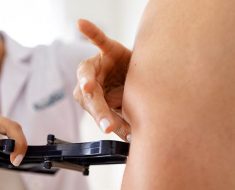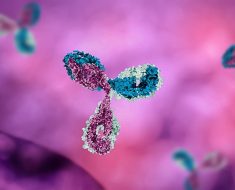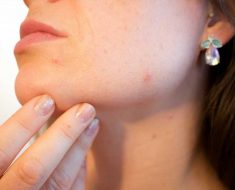Caroline always had a heavier period, but it was when she went off the pill in her 30s that it really started to affect her life.
"It was seven or eight days, on average," the 51-year-old, who works in public relations, recalls. "And it kind of just kept getting heavier and heavier. By the time I was in my 40s it was going eight, nine, 10, even 11 days."
Around 25 per cent of women have heavy menstrual bleeding, categorised as blood loss in excess of 80 mL per cycle.
Around 25 per cent of women have heavy menstrual bleeding.
Dr Elizabeth Farrell, gynaecologist and medical director of Jean Hailes for Women's Health, admits that this measure is not particularly helpful for women trying to figure out if their menstrual cycle is "normal".
"The question is: what does a woman need to use in the way of tampons or pads to be able to make the period as comfortable as possible?" Dr Farrell says.
"If someone tells me they have to stay home on the heaviest day because they feel uncomfortable about flooding – they're concerned about the blood coming through onto their clothes or, if they're sitting on a chair, they're concerned they will flood the chair – then that must be heavy."
If you need a quantitative measure, Dr Farrell says needing change a pad or tampon every two hours because it is full is a good indicator that a woman has a "significant flow".
However, even if these levels are not reached, if a woman's period has gone from being relatively light to heavier, they should visit their GP.
When her period was at its heaviest, Caroline slept on a towel.
"For one or two nights of my period I would have to get up to change [a pad], so that was making me exhausted."
Caroline eventually visited a doctor after taking up taekwondo. She found her heavy periods meant she was missing training sessions because she was afraid of bleeding through onto her white uniform.
"Mostly women start to seek help when it is impacting on their quality of life," explains Dr Farrell. "So, if a woman has to stay home from work because she's terrified it is going to leak through it's so heavy, or she's exhausted because it is so heavy that she can't function at work."
Treatments for heavy menstrual are outlined in the new Clinical Care Standard on Heavy Menstrual Bleeding, introduced last year. This standard, produced by the Australian Commission on Safety and Quality in Health Care, recommends initial pharmaceutical treatment (such as the contraceptive pill), before endometrial ablation, a procedure where the lining of the uterus is burnt away to reduce bleeding, or a hysterectomy are considered in extreme circumstances.
As she had already had children, the solution for Caroline was an endometrial ablation.
She now bleeds for half a day, roughly every three months.
"I didn't realise how much it was affecting me until after doing all of that," she says. "My energy levels went way up, and I don't need to plan for things like I used to – I can go on holidays when I like, it's wonderful."
Heavy periods are often discussed in the context of being a symptom of another condition, such as endometriosis or polycystic ovarian syndrome. However, excessive menstrual bleeding can be a health risk in itself.
"Heavy periods are the main source of iron deficiency in the western world," Dr Farrell says.
"Often if women do [delay treatment], they will end up with severe iron deficiency and they may need to have iron supplementation or iron infusion. And if they're anaemic they may end up needing to have a blood transfusion. That's not common, but occasionally we see that."
The causes of heavy periods are varied, and sometimes indeterminate. In 2011, the International Federation of Gynaecology and Obstetrics (FIGO) developed a classification of causes of abnormal uterine bleeding known as PALM-COEIN: polyps, adenomyosis, leiomyoma, malignancy and hyperplasia, coagulopathy, ovulatory dysfunction, endometrial. iatrogenic (induced inadvertently by medical treatment), and "not yet classified".
The exact cause of Caroline's bleeding was unclear. With a 17-year-old daughter, she is conscious to speak openly about her struggle with heavy periods, encouraging women who think they might have a problem to visit a doctor.
"I think we all just put up with it, but you shouldn't have to," she says.
"Women tend to put themselves at the end of the queue for medical things. So I never really got to the doctor to discuss, it was on the backburner. But I wish I'd done something earlier."
Source: Read Full Article






